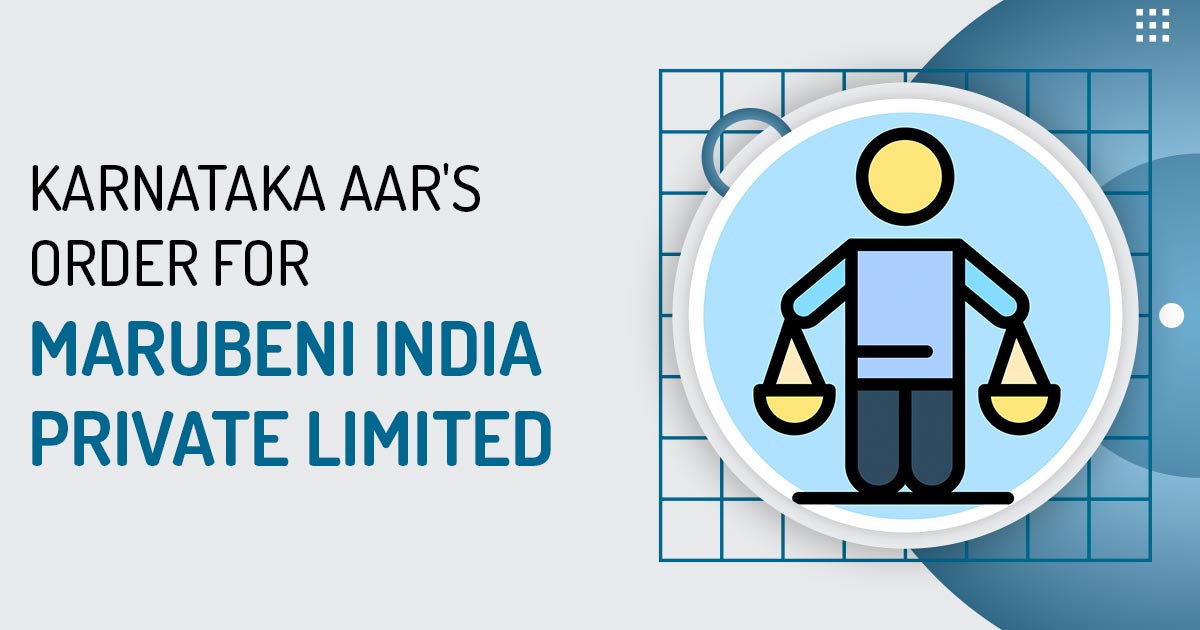
The Karnataka Authority for Advance Ruling (AAR) ruled that the supply of goods to another country’s customer should not be considered a supply of goods or a supply of services.
The applicant is involved in two transactions, according to M.P. Ravi Prasad and Kiran T. Reddy, who make up the two-person bench. The first involves the producer supplying items to the applicant, and the second involves the applicant selling those same goods to a foreign client.
When the initial transaction of the supply of goods is from the manufacturer to the applicant, the location of the supply of commodities shall be the outside location as defined in Section 11(b) of the IGST Act, 2017.
It is discovered that the items are delivered from outside India to outside India based on the second transaction, which entails the applicant supplying the same commodities to clients outside. The aforementioned transaction is classified as a transaction or supply that shall be considered neither as a supply of goods nor a provision of services under Entry 7 of Schedule III of the CGST Act, 2017.
The applicant runs a trading company where he sells finished items and offers support services to clients who are located outside of India. The applicant wants to engage in a fresh business deal. The applicant would participate in the supply of Indian commodities to clients outside of India in this.
The applicant sought an advance judgement on the question of whether or not the applicant’s delivery of products to clients outside of India is taxable under GST as a zero-rated supply.
The Indian manufacturer can supply the goods and complete all export compliance following the applicant’s agreement. This can involve receiving the bill of lading from the shipper as well as filing the bill as an exporter.
The Authority of Advance Ruling (AAR) ruled that the person claiming exporter is the goods holder. The bill of lading verifies the title to goods when the goods are delivered to the shipper. The manufacturer is the owner of the goods and holds the title to them until they cross the customs frontiers of India because it is the manufacturer who files the shipping bill as an exporter and also receives the bill of lading issued to him.
As a result, the manufacturer exports the items from India to a location outside of India while still maintaining ownership of the commodities. For example, he exports the goods in terms of Section 2(5) of the IGST Act, 2017. The manufacturer is the exporter of goods. So, for the manufacturer to supply goods to the applicant, the location of the supply of goods should be outside of India, as in terms of Section 11(b) of the IGST Act, 2017.
Important: Full Guide to GST Eligibility on Free Supplies and Samples
The AAR learned that the commodities are provided from outside India to outside India, or from one location in the non-taxable region to another location in the non-taxable territory, without the items entering India. The deal is covered by Entry 7 of Schedule III of the CGST Act, 2017 as a transaction or supply that shouldn’t be classified as a good or service supply.
| Name of Applicant | M/S. Marubeni India Private Limited |
| GSTIN | 29AAACM6413A3ZV |
| Date | 20.03.2023 |
| AAR Ruling No. | KAR ADRG 14/2023 |
| Represented By | Ms. Neha Kishore, CA Ernst & Young LLP, & Authorised Representative |
| Karnataka AAR | Read Order |








